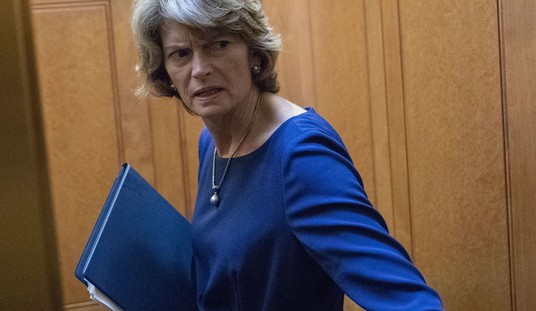**Update: The following senators voted for cloture to open debate on the extension of unemployment benefits with the ridiculous offset provision: Ayotte, Coats, Collins, Corker, Heller, Johnson, Kirk, Murkowski, Portman, and Toomey.**
What happens when instead of fighting the premise of creating a permanent unemployment entitlement, many Republicans focus on offsetting the cost of the extension? We get the extension without any offsets!
Tomorrow, Senator Harry Reid plans to bring a bill to the floor that will extend unprecedented 73 weeks of UI benefits for five months retroactive to January 1. The bipartisan deal, which has the support of GOP Senators Dean Heller of Nevada, Lisa Murkowski of Alaska, Susan Collins of Maine, Rob Portman of Ohio and Mark Kirk of Illinois, will cost $10 billion just for the 5-month extension. We all know that they will continue to extend it when the deadline comes due in just five weeks.
The $10 billion cost would be “offset” by extending custom fees for another year in 2024 – 10 years from now. Additionally, the bill would “save money” by extending a “pension smoothing” provision for taxpayer-backed pension insurance for another few years.
Are you ready for the accounting gimmick of the month?
Most corporate pensions are insured by the taxpayer-funded Pension Benefit Guaranty Corporation (PBGC), which guarantees (up to a limit) the pension obligations promised to workers in the event that a company cannot meet them when they come due. As a condition for insuring the pensions, the PBGC requires companies to contribute specified minimum payments into the pension funds to ensure that they don’t fall behind on fulfilling their obligation and putting taxpayers at risk for bailing them out.
In plain English, “pension smoothing” allows companies to contribute less to pension funds in the short-term. Normally, their required minimum contribution depends on interest rates. When interest rates are lower, they are required to contribute more; otherwise the principle would compound too slowly for them to meet their overall obligation. With interest rates at historical lows, underfunding pensions would place taxpayers at risk to bail them out when they can’t compensate for the shortfall down the road. But like most Washington gimmicks, pension smoothing is designed to kick the can down the road.
So what does pension smoothing have to do with saving money for the federal budget and offsetting new expenditures?
Companies are able to claim tax deductions for every dollar they contribute to workers’ pension funds. By lowering the amount they are requirement to contribute, companies will deduct less from their corporate tax liability. Hence, this represents a notional tortured labyrinth to raise revenue down the road in order to pay for a definitive and immediate 5-month expenditure.
Perforce, not only is this a consummate Washington gimmick to obfuscate increased spending, it represents bad policy. When it becomes clear that pensions are underfunded 7-12 years from now, one of two things will happen. Most likely, companies will not have the money to fund the pensions, and taxpayers will have to bail them out. Alternatively, if they do come up with the money, companies will have to dump extra funds into the pensions, thereby securing a commensurate degree of excess tax deductions. Ultimately, the government will lose the same revenue they seek to gain in the short-term. Call it the rubber-band effect of pension smoothing.
This is what happens when Republicans give into the false premise of extending a bad policy.
It’s time for all Republicans to unite against any new extension. They should call out the Democrats for their ridiculous scheme of short-term extensions and challenge them to make it permanent law, which is what they are doing anyway. Instead, Republicans should support a true job plan that increases energy production, reduces corporate taxes, and expands energy production.
Cross-posted at The Madison Project













Join the conversation as a VIP Member